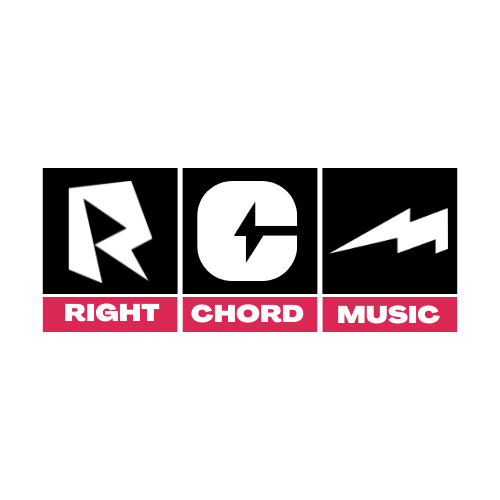Readers of the RCM Blog may know that we’ve never been huge fans of music PR as a discipline, and with each year that passes the case against ‘music PR’ gets stronger. Here are five reasons why music PR consistently fails independent musicians.
What PR should be offering
PR is supposed to be a key tool in the marketing armoury, done well it can increase awareness, enhance reputations and transform negativity into positivity. There is a reason why successful brands have a PR agency alongside their creative and media agencies. Sadly the best practice theory of brand world PR is too often left at the door when it comes to music PR. Why? Because music PR is totally unregulated, anyone can set themselves up as a music PR and there is zero consequence to failure or under delivery. Here are our five biggest gripes.
1. Blindly mailing a database does not constitute music PR
Buy a mailing list online or raid the Unsigned Guide directory and blast out emails on repeat. Sadly this is all too often the extent of music PR.
Last year this blog changed its submission policy moving away from email submissions to online submissions. This simple change allowed us to cover more music. No longer was music lost in our inbox. Now we could open up our submissions database to our growing team of freelance writers and partner blogs.
To signal this change we contacted the music PRs and followed up by adding an autoresponder to our emails to remind anyone that missed the original communication. The best music PRs responded and acknowledged the change and the benefit to their clients.
However, over six months later we are still getting blanket emails from a significant number of supposed music PR companies trying to submit music. In the last few months, we’ve even written more personal emails urging them to READ their emails and stop the email torrent. Sadly nothing changes.
We’ve contemplated publishing a list of the worst offenders, but maybe that would be churlish? Let’s hope they read this and take action. It’s terrible to think how many artists are paying these companies and wasting their hard-earned money with companies that don’t do anything more than blanket bulk mailouts.
2. No feedback, follow-ups or learnings
Back in the brand world clients would insist on a post-campaign analysis or report showing what worked and what didn’t. After all, brands want to learn from their mistakes and improve future effectiveness. Why didn’t magazines, blogs or editors want to feature us? Now I’m not saying that this is not replicated by some music PRs, but from experience, post-campaign reporting is limited and done by the minority, not the majority.
Why? Well, it’s obvious if music PR’s don’t have a relationship with their contacts they can’t provide any feedback or constructive recommendations. This links back to point one. If your sole attempt at music PR is blindly mailing the email addresses of people you don’t know what possible feedback can you provide?
2. No coverage and no accountability
This scenario is sadly too common.
An unsigned artist pays a music PR to promote their new single. They pay in excess of £500 often closer to £1,000 and wait for results. The so-called music PR ‘mails their database’ a couple of times and fails to deliver the titles or coverage they promised at the start. What happens next? Nothing. There is unlikely to be a refund or a discount. After all the PR will tell you, you are paying for their time, not their delivery. The end. Does that seem like good service?
3. We got you press! now good luck finding it
When a music PR fails to land the glamour titles they promised at the start, it seems some will get desperate and will look for ways to prove their worth.
The first tactic is to jump on a self-publishing platform like Medium and publish your press release claiming it’s a review. While others might get press on a small blog that hasn’t even been indexed by Google. As a blogger you quickly realise that without Google, nobody sees your work but unless you have the know-how to change it, many articles will never be found.
There is an old adage ‘all publicity is good publicity’ which is often true, but if you are trying to promote music and nobody can find the article it’s probably a waste of money.
4. No story, no interest
Back in the brand PR world, anyone that has worked in marketing will be familiar with the refrain ‘there is no story’ It’s the most common pushback you will ever hear from someone at a PR agency. PR agencies recognise unless what you have is new, unique, different, unexpected, funny or darn right incredible it’s unlikely to be picked up by news editors.
Sadly this insistence on a unique or interesting story is lost in music PR. As a music blogger, I can confirm there is nothing interesting or unique about the story ‘unknown, unsigned artist releases new unknown song.’
Music PRs have an opportunity to change this, but in the vast majority of cases, they don’t. The lack of care and attention in the accompanying press release is staggering. Forget the absence of a story, how about some links to the music that actually works?!
If you can’t be bothered to find an interesting angle or hook for the body of the press release, please at least spend some time trying to write a title or email subject line that intrigues or engages! Nowadays there is even free software like Co-Schedule to help you write better titles, there is no excuse!
5. Over-reliance on the press release
The press release musicians or their music pr produces is designed to inspire bloggers, writers and editors to write something more. It provides the basic facts and a start point from which the uninspired writer can spring-board. Trust me when you write a music blog at 6am you need a start point!
But unfortunately, far too often the press release becomes the editorial coverage and while you might say (again) all coverage is good coverage it’s not. Our friends at Google think differently. Google indexes content according to its relevance, authority and uniqueness.
So if 5 music blogs all publish the same press release Google will prioritise and promote one blog over the others. That quickly means four reviews are deprioritised in search results at the expense of one.
Maybe I’m being hard on music PRs with this point, after all, they can’t always control the output of the blogger or journalist. But the good PRs who actually have a relationship with the writers at least can try to ensure five pieces of coverage actually mean five unique reviews.
What can do you as an independent musician
Before you handover, your hard-earned money to anyone claiming to offer music PR here is a quick checklist to help protect you.
- Arrange a phone call and ask them to name their favourite track of yours. (This ensures they have even listened and weeds out the companies just after your money).
- Ask for case studies and examples of their previous work
- Ask for a target list of titles to understand who they are approaching
- Ask for a results summary at the end of the campaign and regular updates during
- Ask them to help you craft a story not just an informational press release
Further reading
- Music Promotion: Nobody Cares About Your Music (As Much As You Do)
- Unsigned Bands: Read our 10 point music marketing manifesto for success
Further support
Visit Major Labl, the digital marketing consultancy for unsigned musicians
Words Mark Knight









